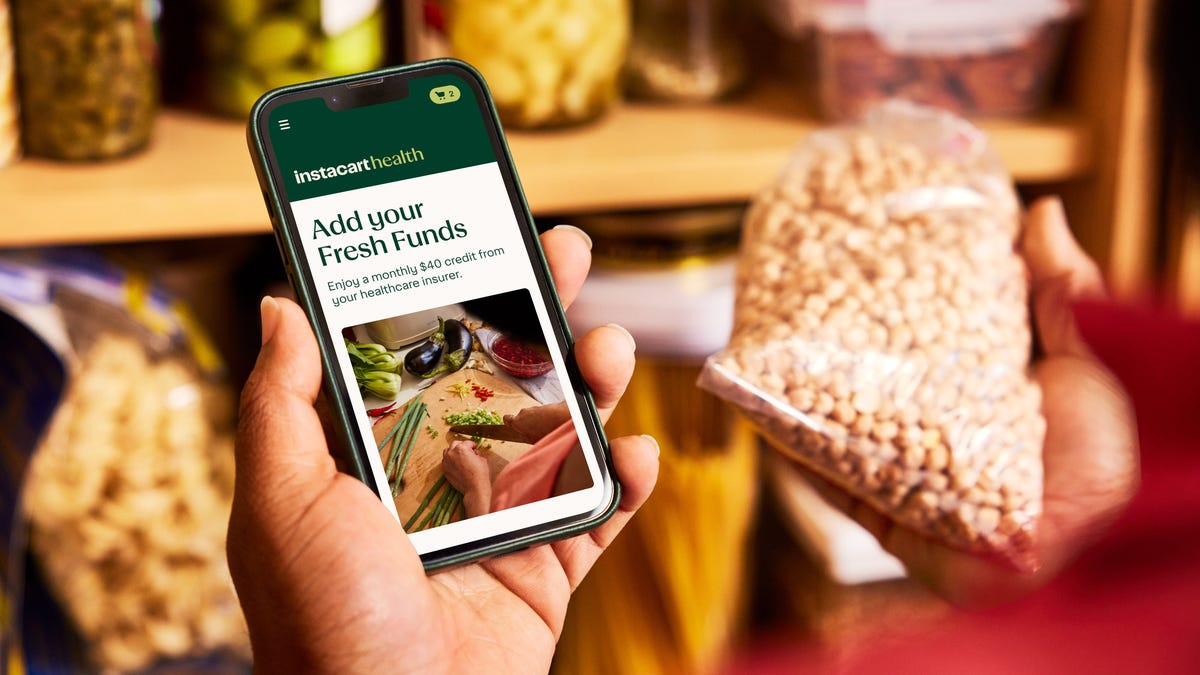Instacart Launches New Business Model to Make Healthy Foods More Accessible
The grocery delivery service is expanding payment options and services tailored around the "food as medicine" concept.

Instacart said Wednesday that it's launching new initiatives for its grocery-delivery business that center on increasing food security and nutrition.
The new model, called Instacart Health, will embrace "food as medicine" -- a concept that views the right food choices as medical treatment and a key component of health care. Care Carts is a new Instacart product the company says will enable health care providers and care givers to order groceries on behalf of someone else.
Fresh Funds, another new service, will allow any health care organization, employer, insurance company or other organization to give people funds so they can buy food via Instacart. In the coming weeks, Instacart says, a digital stipend can be given out and limited to certain foods, like produce.
The company also said it's expanding payment options through EBT and the Supplemental Nutrition Assistance Program, or SNAP, with the goal of expanding EBT SNAP payments to all retail partners by 2030. Instacart will also start allowing people to use their Temporary Assistance for Needy Families, or TANF, benefits so they can order household items like toilet paper through Instacart starting in 2023 at some locations.
Instacart's initiatives that are aimed at improving access to healthy foods, and food in general, were announced the same day the White House is holding its first conference on food security and nutrition in more than 50 years. Diets lacking adequate nutrition have a significant link to poor health outcomes, including an increased risk of death from certain illnesses. However, having access and choice over food isn't always an option for many Americans. In 2021, about 10% of households in the US were food insecure at some point, which means they couldn't necessarily depend on their next meal or didn't have adequate nutritious food for everyone in their home.

